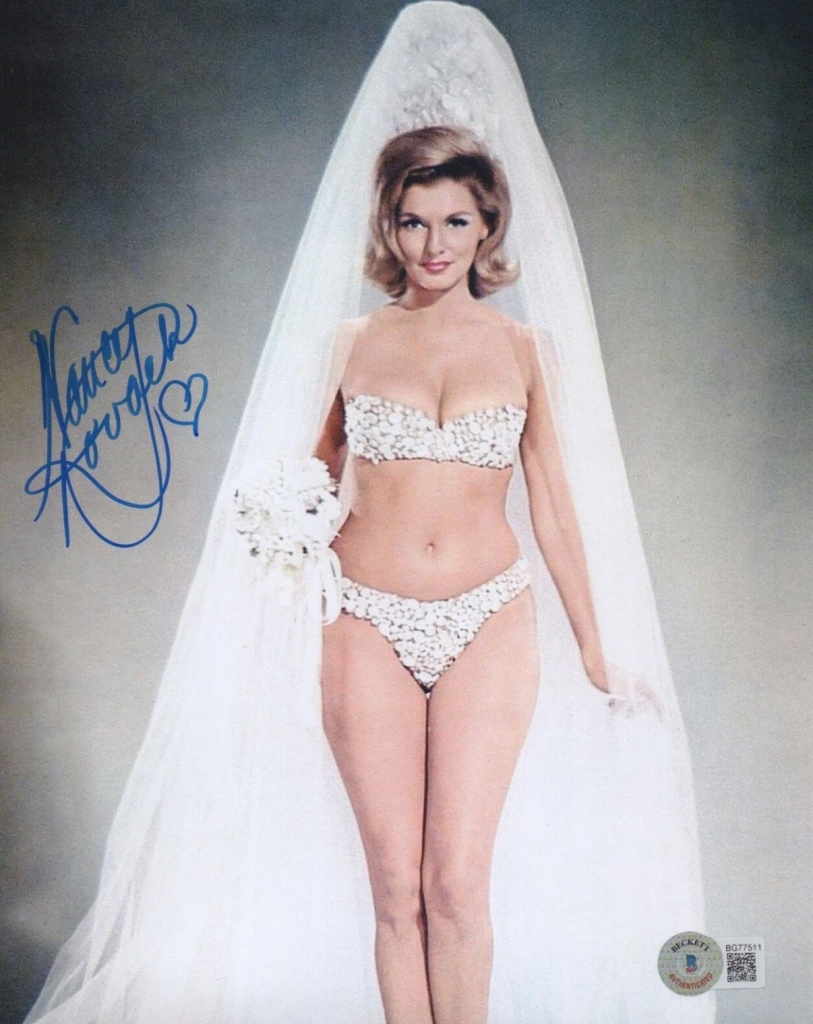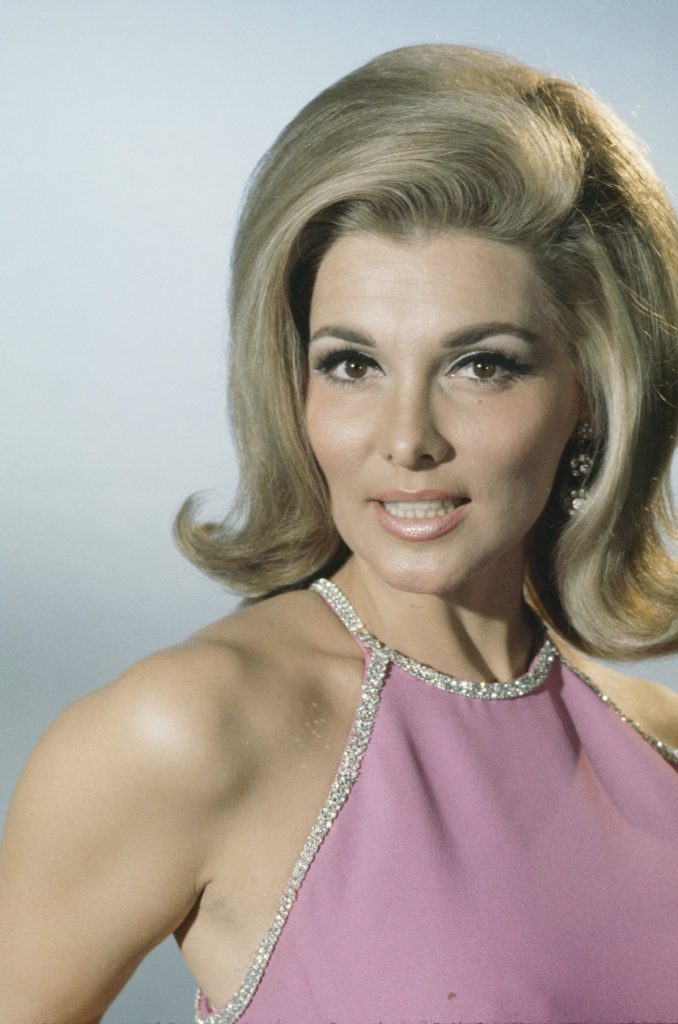Nancy Kovack’s story begins on March 11, 1935, in the industrious city of Flint, Michigan—a place better known for automobiles than Hollywood glamour. Her father, Michael A. Kovack, worked as a manager at a General Motors plant, providing a stable, middle-class upbringing in the post-Depression era. Yet, even in this modest setting, Nancy’s intelligence, ambition, and charisma hinted at a much larger destiny.
By the age of 15, she had already graduated from Flint Central High School, an achievement that spoke volumes about her drive and intellect. She continued her academic journey at the University of Michigan, graduating with honors at just 19. But it wasn’t just her scholarly prowess that set her apart—her elegance and striking beauty made her impossible to overlook.

From Beauty Pageants to the Spotlight
Recognizing the opportunities in pageantry, Nancy entered competitions and quickly began winning titles—eight in total, including Miss Flint and Miss Michigan. These victories not only put her in the public eye but also gave her a springboard into the world of entertainment. With her sharp mind, polished demeanor, and undeniable presence, she was a perfect fit for the spotlight.
Her career began with modeling, where she commanded a remarkable $50,000 annually—an impressive feat for the 1950s. Soon after, television legend Jackie Gleason invited her to join his show as one of the glamorous “Glee Girls,” a move that thrust her into the national limelight.
Breaking into Television
From there, Nancy Kovack’s presence on television exploded. She hosted the popular game show “Beat the Clock” and began landing guest spots on some of the most iconic shows of the era. Her adaptability and screen presence allowed her to embody characters ranging from sophisticated socialites to cunning villains.
Audiences fondly remember her roles on Bewitched, where she portrayed both the elegant Sheila Sommers and the fiery Clio Vanita. She also graced hit shows such as Batman, I Dream of Jeannie, Perry Mason, Get Smart, and Star Trek. In the 1968 Star Trek episode “A Private Little War,” she took on the memorable role of Nona, a tribal medicine woman—proving she could bring depth and nuance to even the most fantastical settings.
Making Her Mark on the Silver Screen

While television made her a household name, the big screen cemented her as a Hollywood force. Nancy brought myth and legend to life as Medea in Jason and the Argonauts (1963), starred alongside Vincent Price in Diary of a Madman (1963), and embodied the adventurous Nellie Bly in Frankie and Johnny (1966).
Her role opposite Dean Martin in The Silencers (1966) showcased her charm in the spy-comedy genre, while her appearance in the sci-fi drama Marooned (1969)—winner of an Academy Award for Best Visual Effects—demonstrated her range and willingness to explore challenging roles.
A Love Story That Changed Everything
In 1969, Nancy’s life took a turn away from Hollywood when she married celebrated Indian conductor Zubin Mehta, then the music director of the Los Angeles Philharmonic. The pair met at a dinner party in 1968 and quickly fell in love. After their wedding, Nancy began stepping back from acting to support her husband’s international career. The couple split their time between homes in Los Angeles and Tuscany, enjoying a life rich in art, music, and travel.
Smart Moves Beyond the Screen

Even after leaving Hollywood’s fast lane, Nancy proved herself a strategic thinker. She invested wisely in real estate in cities like Los Angeles and New York, and built a strong stock market portfolio with shares in major companies—including General Motors.
Philanthropy also became a meaningful part of her life. She founded the Nancy Kovack Scholarship Fund at the University of Michigan to support arts students, ensuring her legacy extended beyond performance to empowering future generations.
Legacy of Grace, Talent, and Intelligence
Though Nancy Kovack eventually stepped away from the spotlight, her impact endures. She remains a celebrated figure in classic television and film, remembered for her elegance, talent, and the rare combination of beauty and intellect. Her story is not just one of Hollywood success, but of a woman who navigated fame, love, and business with grace.

In an industry often defined by fleeting fame, Nancy Kovack’s career stands as proof that intelligence and talent, paired with ambition, can create a legacy that lasts far beyond the final curtain call


